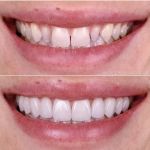
- 1 - Understanding Tooth Nerve Damage
- 2 - Common Signs of Tooth Nerve Damage
- 3 - What Causes Tooth Nerve Damage?
- 4 - Symptoms of Tooth Nerve Damage: What to Look For
- 5 - Immediate Pain Relief Strategies for Tooth Nerve Damage
- 6 - Treatment Options for Tooth Nerve Damage
- 7 - Preventing Tooth Nerve Damage
- 8 - When to Seek Professional Dental Help
- 9 - Real-Life Experience and Management Tips
- 10 - How Family Dentistry Online Can Help
1. Understanding Tooth Nerve Damage
Tooth nerve damage occurs when the nerves inside the tooth or the surrounding tissues become injured or infected. These nerves are located in the pulp of the tooth, and when they are damaged, they can cause significant discomfort and even more severe dental issues. Nerve damage can result from various factors, including decay, trauma, or infection. Understanding the causes and symptoms of tooth nerve damage is essential for managing and treating it effectively.
2. Common Signs of Tooth Nerve Damage
Recognizing the signs of tooth nerve damage early can help prevent more severe damage or infection. Here are some of the most common indicators of nerve issues in your teeth:
1. Severe tooth pain: Sharp or throbbing pain that may be constant or triggered by chewing, hot, or cold foods.
2. Sensitivity to temperature: A heightened sensitivity to hot or cold temperatures that lingers long after the stimulus has been removed.
3. Swelling and tenderness: Swelling around the tooth or gums, along with tenderness when touched, which may indicate an infection affecting the nerve.
4. Discoloration of the tooth: A tooth that turns darker in color due to nerve damage or death.
5. Bad breath or a bad taste: Persistent foul breath or taste in the mouth, which may signify an infection in the tooth nerve.
3. What Causes Tooth Nerve Damage?
Tooth nerve damage can happen for several reasons, including:
1. Deep tooth decay: Untreated cavities can spread to the inner layers of the tooth, eventually reaching the nerve and causing infection or inflammation.
2. Trauma or injury: A blow to the tooth, such as from an accident or sports injury, can damage the nerve directly, causing pain and discomfort.
3. Infections: Bacterial infections, such as abscesses, can spread to the tooth nerve, leading to swelling, pain, and possible nerve death.
4. Repeated dental procedures: Multiple dental treatments, such as fillings or crowns, especially if improperly done, may irritate or damage the nerve.
4. Symptoms of Tooth Nerve Damage: What to Look For
Aside from the general tooth pain and sensitivity, specific symptoms may help you identify nerve damage in your teeth. These include:
1. Extreme pain when chewing or touching the tooth.
2. Lingering sensitivity to hot or cold drinks and foods.
3. A tooth that feels unusually loose or wobbly.
4. A noticeable abscess or pimple-like bump on the gums near the affected tooth.
If you experience any of these symptoms, it's important to seek dental advice as soon as possible to prevent further damage and manage the pain effectively.
5. Immediate Pain Relief Strategies for Tooth Nerve Damage
If you are experiencing tooth nerve pain, here are some immediate strategies to help relieve discomfort:
1. Over-the-counter pain relief: Medications like ibuprofen or acetaminophen can help reduce pain and inflammation temporarily.
2. Cold compress: Applying a cold compress to the outside of your mouth near the affected area can help numb the pain.
3. Saltwater rinse: Gently rinsing your mouth with warm saltwater can help reduce inflammation and cleanse the area of bacteria.
4. Avoid triggers: Try to avoid hot, cold, or sweet foods and drinks that may aggravate the nerve pain.
6. Treatment Options for Tooth Nerve Damage
When it comes to managing tooth nerve damage, several treatment options are available, depending on the severity:
1. Root canal treatment: If the nerve inside the tooth is severely damaged or infected, a root canal may be necessary to remove the infected tissue and save the tooth.
2. Tooth extraction: If the tooth cannot be saved due to extensive nerve damage, it may need to be extracted and replaced with an implant or bridge.
3. Antibiotics: If the nerve damage is accompanied by an infection, antibiotics may be prescribed to help clear the infection before further procedures.
7. Preventing Tooth Nerve Damage
Preventing tooth nerve damage is possible by maintaining good oral hygiene and taking steps to protect your teeth. Here are some tips:
1. Regular dental checkups: Routine visits to the dentist can help catch any signs of decay or damage before they reach the nerve.
2. Proper brushing and flossing: Brushing twice a day and flossing daily will help keep your teeth and gums healthy and prevent decay that could lead to nerve damage.
3. Wear a mouthguard: If you participate in sports or grind your teeth, wearing a mouthguard can protect your teeth from trauma and prevent nerve injury.
8. When to Seek Professional Dental Help
If you are experiencing persistent tooth pain or any symptoms of nerve damage, it’s important to seek professional dental help immediately. A dentist can assess the extent of the damage and provide treatment options tailored to your needs. Early intervention can prevent further complications and ensure that your tooth remains healthy and functional.
9. Real-Life Experience and Management Tips
One patient shared how their dentist caught a nerve infection early during a routine checkup. The dentist quickly performed a root canal, relieving the pain and preventing the need for tooth extraction. This experience highlights the importance of regular checkups in identifying potential issues before they escalate.
10. How Family Dentistry Online Can Help
At Family Dentistry Online, we offer expert advice and resources to help you understand and manage tooth nerve damage. Our team provides comprehensive dental care, including preventive treatments, pain management, and emergency dental services. Visit us for more information on how to protect your teeth and maintain a healthy smile.







 Lourdes's Dentistry - Affordable Dentist4.0 (160 review)
Lourdes's Dentistry - Affordable Dentist4.0 (160 review) Silc Periodontics4.0 (169 review)
Silc Periodontics4.0 (169 review) Doc Bresler's Cavity Busters4.0 (363 review)
Doc Bresler's Cavity Busters4.0 (363 review) McCall Family Dentistry5.0 (718 review)
McCall Family Dentistry5.0 (718 review) Justin Ewell, DMD at Suncoast Dental Goodyear0.0 (0 review)
Justin Ewell, DMD at Suncoast Dental Goodyear0.0 (0 review) Harbor Point Dental at Pelham Manor4.0 (118 review)
Harbor Point Dental at Pelham Manor4.0 (118 review) The Importance of Oral Health Education During Pregnancy for a Healthy Pregnancy
The Importance of Oral Health Education During Pregnancy for a Healthy Pregnancy Best Tips for Brushing Your Teeth Properly for Healthy Gums: Essential Techniques for Oral Health
Best Tips for Brushing Your Teeth Properly for Healthy Gums: Essential Techniques for Oral Health Why Skipping Dental Checkups Can Lead to Bigger Oral Health Problems
Why Skipping Dental Checkups Can Lead to Bigger Oral Health Problems Advantages of Porcelain Dental Restorations
Advantages of Porcelain Dental Restorations How Can Diabetes Cause Tooth and Gum Problems? Preventing and Managing Oral Health Issues
How Can Diabetes Cause Tooth and Gum Problems? Preventing and Managing Oral Health Issues Healthy Habits for Promoting Good Oral Health and Hygiene: Tips for a Healthy Smile
Healthy Habits for Promoting Good Oral Health and Hygiene: Tips for a Healthy Smile